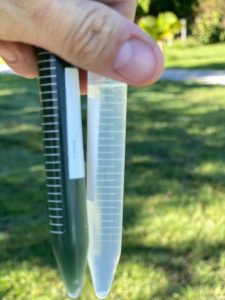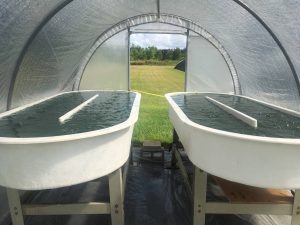There has been a lot of research on spirulina. Spirulina is not new or just a fad. The following are several articles that are from very accredited resources and will give some insight on this awesome superfood.
Spirulina was successfully used by NASA astronauts

Spirulina in Clinical Practice: Evidence-Based Human Applications
Spirulina or Arthrospira is a blue-green alga that became famous after it was successfully used by NASA as a dietary supplement for astronauts on space missions. It has the ability to modulate immune functions and exhibits anti-inflammatory properties by inhibiting the release of histamine by mast cells. Multiple studies investigating the efficacy and the potential clinical applications of Spirulina in treating several diseases have been performed and a few randomized controlled trials and systematic reviews suggest that this alga may improve several symptoms and may even have an anticancer, antiviral and antiallergic effects. Current and potential clinical applications, issues of safety, indications, side-effects and levels of evidence are addressed in this review. Areas of ongoing and future research are also discussed.
Is Spirulina Anti Inflammatory?
Hypolipidemic, Antioxidant and Antiinflammatory Activities of Microalgae Spirulina
Spirulina is free-floating filamentous microalgae growing in alkaline water bodies. With its high nutritional value, Spirulina has been consumed as food for centuries in Central Africa. It is now widely used as nutraceutical food supplement worldwide. Recently, great attention and extensive studies have been devoted to evaluate its therapeutic benefits on an array of diseased conditions including hypercholesterolemia, hyperglycerolemia, cardiovascular diseases, inflammatory diseases, cancer and viral infections. The cardiovascular benefits of Spirulina are primarily resulted from its hypolipidemic, antioxidant and antiinflammatory activities.

Spirulina Research Studies

Penn State Hershey Article
Spirulina is a type of blue-green algae that is rich in protein, vitamins, minerals, carotenoids, and antioxidants that can help protect cells from damage. It contains nutrients, including B complex vitamins, beta-carotene, vitamin E, manganese, zinc, copper, iron, selenium, and gamma linolenic acid (an essential fatty acid).
Spirulina — like any blue-green algae — can be contaminated with toxic substances called microcystins. It can also absorb heavy metals from the water where it is grown. For these reasons, it is important to buy spirulina from a trusted brand.
Nutrition and Spirulina
Nutritional and toxicological aspects of Spirulina (Arthrospira)
Abstract Undernutrition constitutes a public health problem particularly in developing countries. The utilization of algae, particularly Spirulina, as a functional food was suggested decades ago due to the fact that it is not only a protein-dense food source, but because its amino acid profile is considered as of high biologic-value protein content. Spirulina provides essential fats (e.g., gamma-linolenic oleic acids), concomitant to low content nucleic acids. It also has an exceptionally high content of vitamin B12, is a good source of beta-carotene, iron, calcium and phosphorous. Moreover, Spirulina has also proven to have good acceptance as of its organoleptic properties (thus making it a possible prospect for food or a nutrition supplement) and it has not exhibited neither acute nor chronic

More Research on Spirulina Benefits

The beneficial effects of Spirulina focusing on its immunomodulatory and antioxidant properties
Spirulina, linking bacteria and plants is primitive, has a simple structure but a complex composition. It has been a common dietary substance around the world from ancient times. Although dietary usage and supplementation continues to be popular, there was for a long time no strong scientific evidence of spirulina’s nutritive and health benefits. In recent years, spirulina has attracted scientific attention, not only for its various health benefits, but also at a micro level of understanding the mechanisms of action of its various components. From being a ‘complete’ protein source, spirulina and its components have been shown to have positive benefit across a range of human health indications from malnutrition to antioxidant properties.







